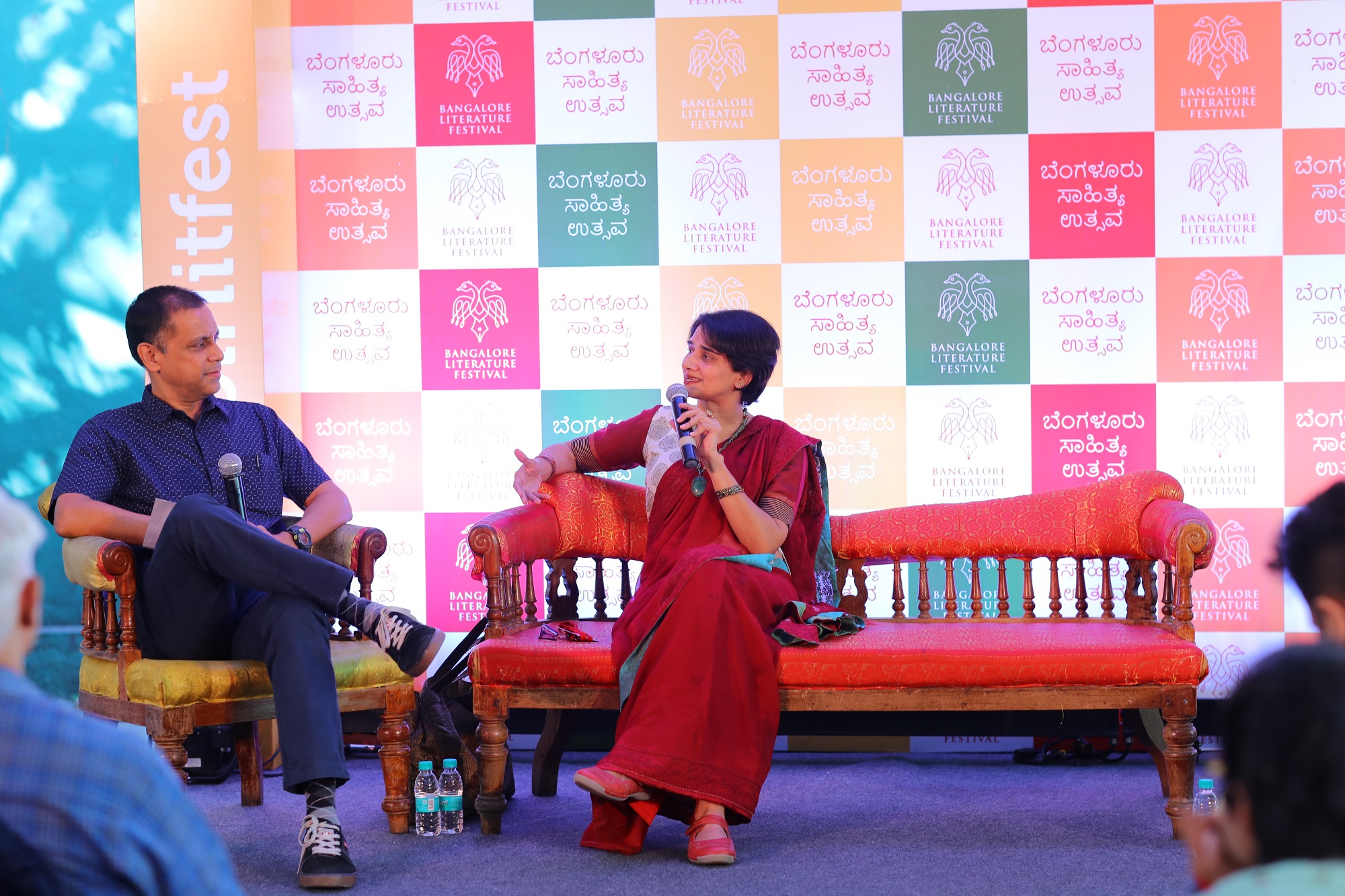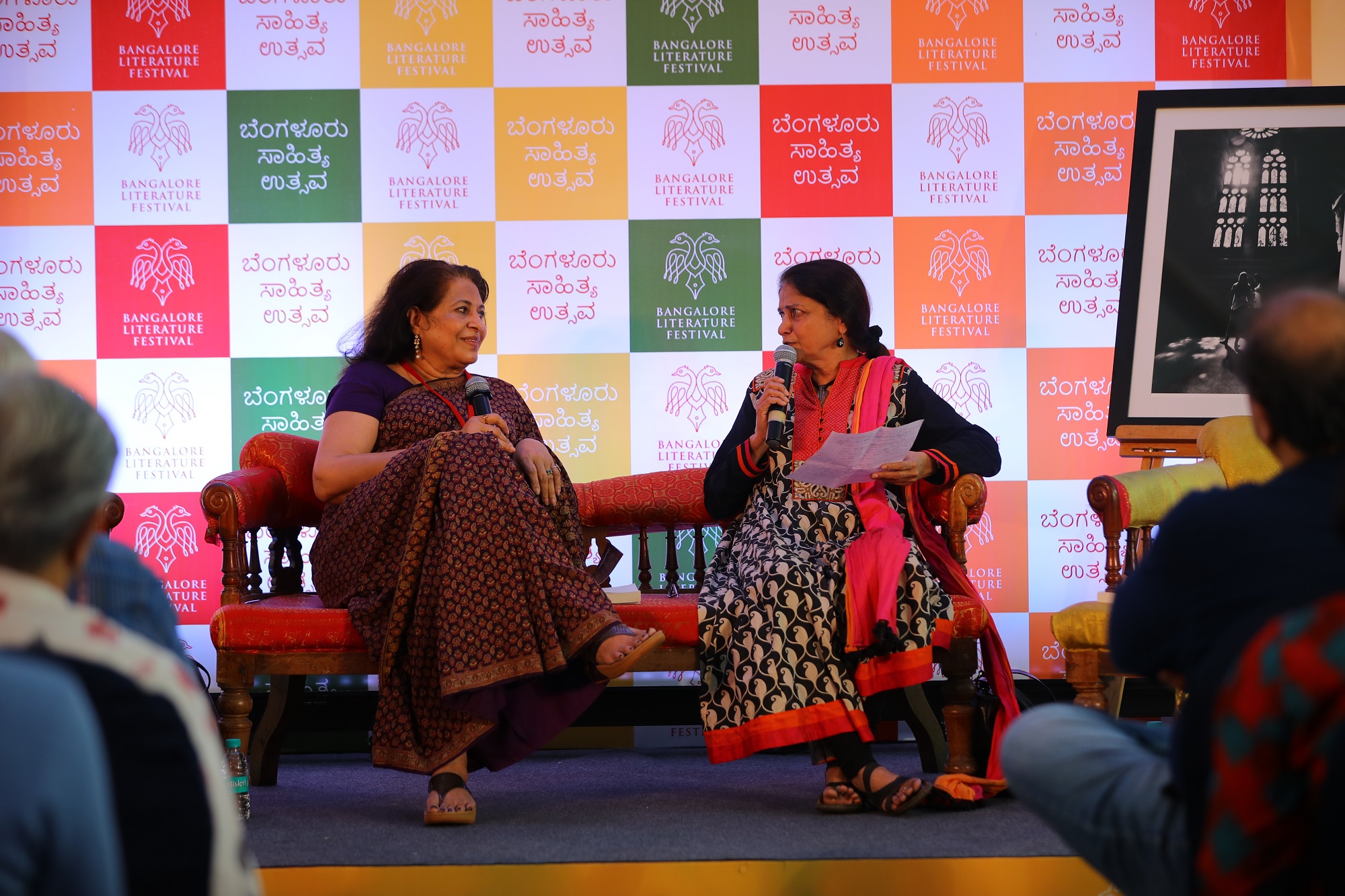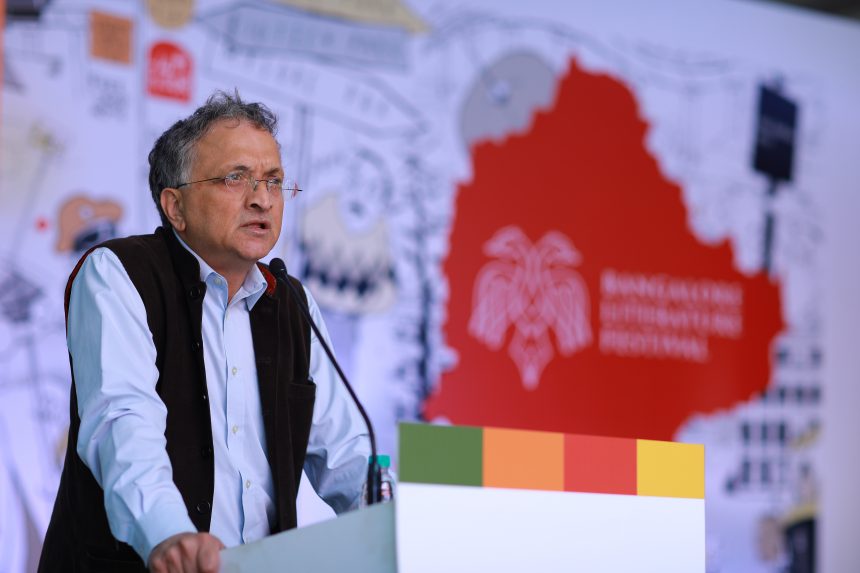“I don’t write to please somebody. I write because I enjoy it” says Sudha Murty, an engineer, social worker, and one of the most prominent writers of India.
The first session of the Bangalore Literature Festival 2020 witnessed an interesting conversation between Sudha Murty and Andaleeb Wajid. Andaleeb Wajid is a Bangalore-based writer whose famous works include The Tamanna Trilogy, The Crunch Factor, My Brother’s Wedding, and More Than Just Biryani.
The session circled around Sudha Murty’s latest book, Grandparents’ bag of stories. Andaleeb started the discussion by asking about the inspiration behind writing this book. Sudha Murty said, when the covid lockdown began in March, she was wondering what she would have done during this pandemic if she was a kid. Because she grew up in a village, she thought of her grandparents and how they would have told her a lot of stories. “I remembered I wrote a book ‘Grandma’s Bag of Stories’, and thought why don’t I write a sequel to it!” she recollected.
She pointed out that it took just 2-3 weeks to finish the book. While expressing her love towards the book, she compared its stories with pearls in a necklace and grandparents to the thread that holds the pearls together. She also added that she cherishes writing for children and young adults and recalled the sweetest comments she received from children.
When Andaleeb asked Sudha about her favourite choice between writing fiction and writing non-fiction, Sudha replied “When I was young, I used to enjoy fiction. Now, I don’t. For children, it has to be fiction. But for young adults, I prefer non-fiction as I always feel that life is stranger than fiction. In fiction, you imagine certain things, and it is directly proportional to the capacity of your imagination. When it comes to non-fiction, there are so many things that you cannot even imagine. There are no limits. Also, one can learn a lot from non-fiction and real life.”
Sudha threw some light on the kind of books she read in her childhood. She said she did not have much choice as there was no electricity or television in her village. Reading was the only entertainment in those times. She said she was more into epics like Ramayana and Mahabharata, further acknowledging that it helped her in writing mythology in later years.
Speaking about current generation kids, Sudha said, making their reading sessions more interactive is the best advice she could give to make them enjoy literature.
When she was asked about the closest book to her, Sudha mentioned that “House of cards” could be the closest one as she spent 15 years thinking about it and was not easily convinced with the output. “I write until I convince myself with my work” she added.
The session ended with Sudha Murty announcing her upcoming work which is going to be the second book of The Gopi Diaries Series. She plans to release it in January 2021.
About the Author: Sai Pradeep is an aspiring writer from Visakhapatnam who recently published his first collection of poetry, All the lights within us. He is working as a content writer in Bangalore. He currently writes for TheSeer.


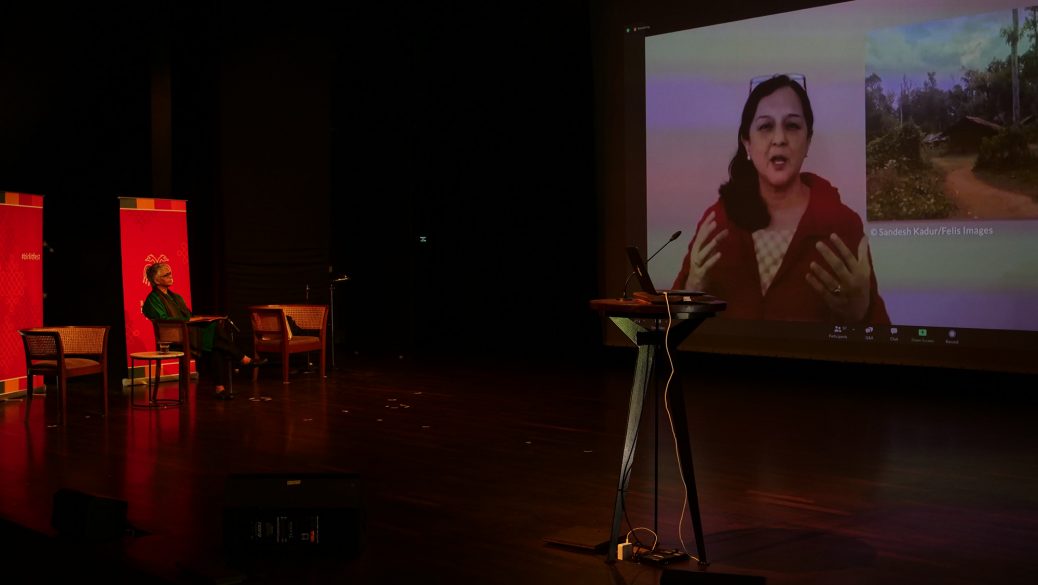
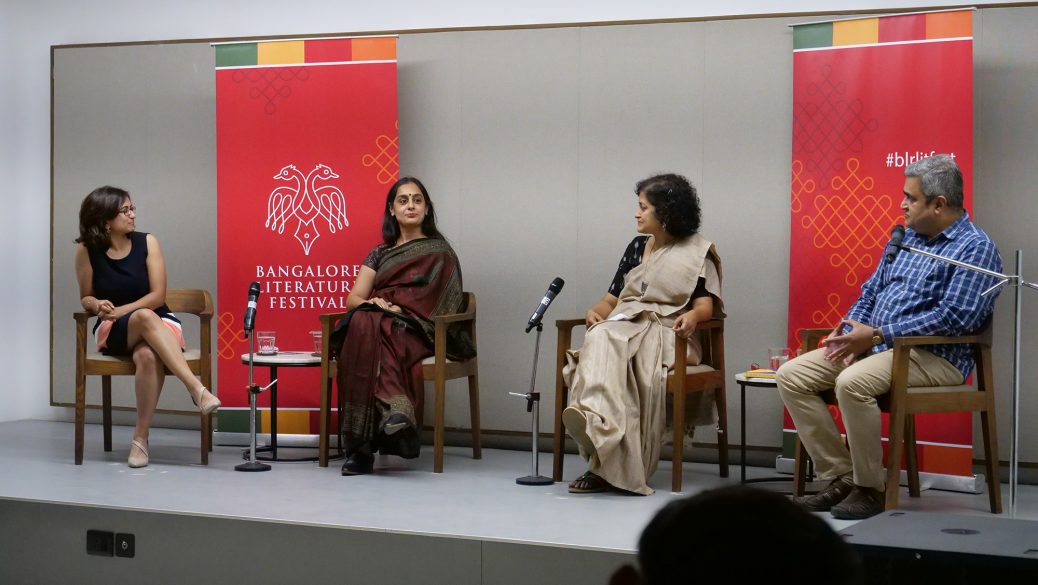













 I see three kinds of Hindus right now. One is all for the strengthening and flaunting of muscles, there is another set which says no this is not my Hinduism, my Hinduism is more spiritual, it is about my soul and introspection, reflecting and knowing myself, and then there is one more which is unaffected by this entire debate, they are immersed in their own lives carrying on their daily worship and rituals. Where do you see harmony between these?
I see three kinds of Hindus right now. One is all for the strengthening and flaunting of muscles, there is another set which says no this is not my Hinduism, my Hinduism is more spiritual, it is about my soul and introspection, reflecting and knowing myself, and then there is one more which is unaffected by this entire debate, they are immersed in their own lives carrying on their daily worship and rituals. Where do you see harmony between these?
